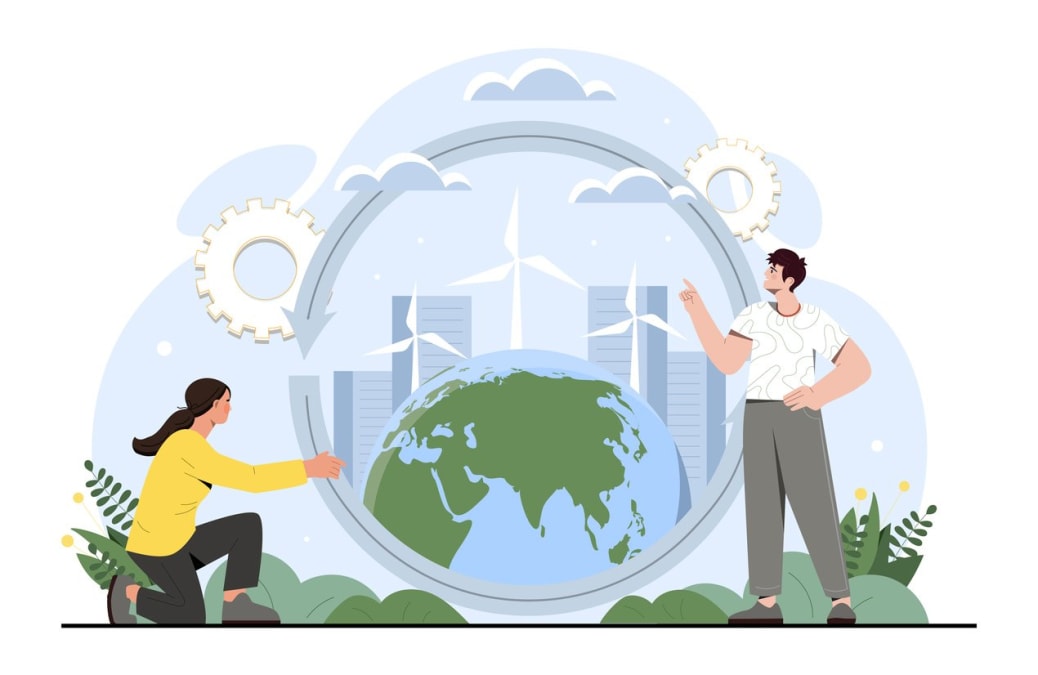Efficiency isn’t just about getting things done—it’s about getting the right things done well. Are you spending your time and resources wisely? Dive into this article for a no-nonsense guide to upping your efficiency game. Discover savvy strategies for maximizing personal and professional productivity while minimizing waste. Whether it’s optimizing workflows or honing time management, you’re on the brink of grasping efficiency that translates into success.
Key takeaways
- Efficiency is crucial for achieving maximum productivity with minimal waste and revolves around the optimal use of resources, including energy (electrical and heat), time, and money, highlighting its importance in sustainable economic development.
- Business efficiency focuses on maximizing resource effectiveness and minimizing waste through strategic operations, such as automating manual tasks, fostering a culture of continuous improvement, and enhancing team communication and collaboration with platforms like Kumospace.
- Personal efficiency, which extends beyond work, entails effective time management, proper lifestyle choices, emotional intelligence, and goal-setting practices that contribute to professional success and personal well-being while also considering the environmental impact.
Understanding efficiency

Efficiency is often tossed around as a buzzword, but what does it truly mean? At its heart, efficiency is about achieving maximum productivity with minimum wasted effort or expense. It’s the art of making the best possible use of resources. In this context, average efficiency refers to the typical level of productivity achieved with minimal waste.
Given our world’s finite resources such as converting energy, including electrical energy, electrical power, and heat, time, and money, mastering the skill to calculate efficiency is pivotal for enduring success. As we progress towards sustainable economic development, the correlation between efficiencies and the power of sustainability takes on growing importance, with the ratio of energy usage playing a crucial role.
Cost efficiency
Within the realm of business, cost efficiency transcends mere penny-pinching. It’s a strategic approach to minimizing expenses while maximizing the quality and value of outputs. This could mean anything from reducing the energy required to produce goods to optimizing how resources are allocated across company divisions.
Diverse factors, including industry type and operational level, influence how cost-efficiency strategies are implemented, demonstrating that there is no one-size-fits-all approach. Ultimately, cost efficiency is about making smart choices that reduce waste and enhance the ability to create value.
Time efficiency
Time efficiency encompasses far more than mere clock-watching. It’s about organizing and prioritizing daily tasks to achieve goals in the most effective way possible. Effective time management can lead to increased productivity and work quality, contributing to a more balanced and less stressful life. Mastering time efficiency allows individuals to convert their time into a valuable asset, fostering a sense of accomplishment and confidence while evading mental fatigue.
Techniques to enhance time efficiency range from structured schedules to minimizing interruptions and leveraging technology to automate repeatable tasks. Controlling distractions and planning your day strategically are the keys to unlocking this potential, and it all starts with an honest evaluation of how you currently spend your time. Remember, time management is your defense against the stress of procrastination and missed opportunities.
Enhancing efficiency in business

In business settings, efficiency not only pertains to doing things correctly but also to undertaking the appropriate tasks. Business efficiency refers to the maximization of resource use effectiveness, ensuring that every investment made contributes to a substantial return. This focus on doing useful work rather than simply more work separates efficiency from productivity and can be the difference between thriving and merely surviving in today’s competitive market.
By reducing waste and aligning expenditures with significant gains, businesses can create a robust foundation for success. Adopting efficient processes not only minimizes errors but also lowers operational costs, creating an agile environment that’s equipped to adapt to changing industry demands.
Operational efficiency
Simplifying operations stands as a cornerstone of operational efficiency. By reviewing and realigning business processes, companies can achieve a more efficient workflow. Automation, including the use of mechanical power, is a powerful tool in this regard; by delegating manual tasks to technology, businesses can free up staff to concentrate on strategic initiatives. However, measuring and monitoring performance through accessible data and stakeholder feedback is crucial to understanding and improving operational efficiency.
Minimizing resource waste and aligning resources with tasks can prevent both over and underutilization, which are common pitfalls in operation management. Moreover, fostering a culture of innovation can lead to continuous improvement and a more dynamic approach to work, as seen with the adoption of new practices like asynchronous work.
Communication and collaboration
Within the orchestration of business operations, communication and collaboration serve as harmonious melodies that unify teams. Platforms like Kumospace are revolutionizing the way teams interact, combining the benefits of face-to-face interaction with digital convenience. Workflow software, for example, automates routine tasks and promotes seamless collaboration, ensuring that every cog in the machine is working in sync, optimizing output.
Effective communication isn’t just about the tools; it’s also about choosing the right channels and respecting colleagues’ time to enhance clarity and impact. A work culture that values feedback handles conflicts respectfully, and supports its members emotionally can significantly contribute to a team’s overall efficiency and success.
Kumospace enhances efficiency through collaboration by providing a virtual space where individuals can interact in real time. This platform allows for seamless collaboration through features such as screen sharing and shared whiteboards, facilitating brainstorming sessions and idea exchanges. Additionally, Kumospace eliminates geographical barriers, enabling teams from different locations to collaborate effectively without the need for physical presence, ultimately streamlining workflows and enhancing productivity.
Boosting personal efficiency

The principle of efficiency isn’t limited to the boardroom; it permeates all aspects of life. Personal efficiency is about handling life’s myriad tasks swiftly and effectively, leading to maximum results with a minimal investment of time and resources. By enhancing personal efficiency, individuals can achieve greater professional outcomes and personal fulfillment.
Fundamental lifestyle factors like getting enough sleep, eating a balanced diet, exercising regularly, and managing stress contribute significantly to one’s personal efficiency. Additionally, developing emotional intelligence and engaging in activities such as reading, traveling, and networking can broaden personal horizons and nourish the brain, further boosting personal efficiency.
Time management
Given the finiteness of time, managing it effectively is crucial for productivity. By categorizing tasks using methods like the Eisenhower matrix, individuals can focus on what truly matters. Avoiding multitasking allows for more focused execution of tasks, while the 20-minute rule and task segmentation can boost concentration and simplify complex projects. Furthermore, managing distractions and taking regular breaks can prevent burnout and maintain a work-life balance.
Time management isn’t a one-size-fits-all system; it requires personalization and may involve a digital detox or strategic task sequencing for daily improvements. A proactive start to the day can provide a productive period for planning and task execution, and efficient delegation of tasks to skilled team members can enhance overall efficiency.
Goal setting and prioritization
The process of setting and accomplishing goals resembles steering a ship; an aimless journey ensues in the absence of a clear endpoint and a mapped-out route. The SMART criteria provide a framework for setting realistic goals by ensuring they are:
- Specific
- Measurable
- Achievable
- Relevant
- Time-bound
Prioritization is just as important; tools like the Eisenhower matrix help differentiate between tasks that are urgent and those that are important, improving focus and efficiency.
Breaking down larger goals into smaller, actionable sub-goals not only simplifies the process but also provides a clear progress-tracking system. Personal motivators and celebrating small victories can be powerful incentives, keeping one engaged and motivated on the path to goal achievement. Strategic planning should resonate with one’s core values, ensuring that personal efficiency aligns with a sustainable and fulfilling lifestyle.
Environmental impact of efficiency

Efficiency’s benefits are not confined to economic progress and personal development; they also manifest in environmental impact. Resource efficiency measures the value produced relative to the resources consumed, playing a pivotal role in assessing the environmental impacts of efficiency.
Embracing the circular economy concept, which aims to extend product lifecycles, companies can minimize waste and reduce the dependency on virgin materials. This approach not only conserves resources but also promotes sustainability, ensuring that our planet’s health is factored into the quest for efficiency, such as the implementation of heat pumps.
Summary
The journey through the landscape of efficiency has revealed a world where precision, strategy, and mindfulness converge to create a more productive, sustainable, and fulfilling existence. From the intricacies of cost and time efficiency to the transformative power of effective business operations and personal habits, the pursuit of efficiency is a multifaceted endeavor that touches every aspect of our lives. Using platforms such as Kumospace can help improve your team’s efficiency. Let this exploration serve as a catalyst for your own journey toward maximized efficiency, where every action is a step toward a better self and a healthier world.
Frequently Asked Questions
What do you mean? An African or a European swallow?
Efficient means being able to successfully accomplish tasks without wasting time, energy, or materials. It can be applied to both people and things, but it's mostly used for machines, systems, processes, and organizations.
Business efficiency is about getting the most out of resources, while productivity is about the quantity of work done.
By automating manual processes and streamlining operations, technology allows staff to focus on strategic tasks, ultimately enhancing operational efficiency.
Incorporating habits such as sufficient sleep, a balanced diet, exercise, and stress management can significantly boost personal efficiency. This can lead to improved productivity and well-being.





